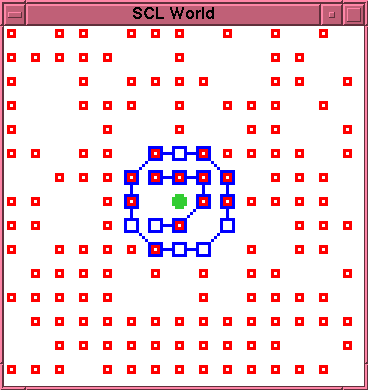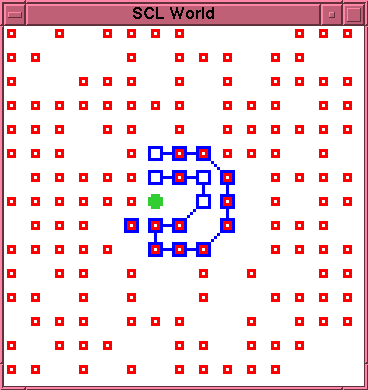
 6 Experiment 1
6 Experiment 1
As expected, S particles initially permeate through the membrane and, under the influence of the K particle, production of L particles starts. However, instead of these L particles remaining mobile, trapped within the membrane, in readiness to repair any rupture, they begin to spontaneously bond to each other. Given that bonded L particles are specified to be immobile, this means that such particles are not available to drift to a rupture site. The screenshot of figure 3 was taken at time 110. The membrane has not yet suffered any decay. However, the interior of the membrane is now completely clogged with bonded--and thus immobile--L particles. Only two open positions remain inside the membrane, one occupied by the K particle. Since the production reaction requires two S particles adjacent to each other and to the K particle, there is no longer any available site for further production within the membrane, and further production of L particles is impossible. It follows that, whenever the membrane does eventually rupture, there will be no mobile L particles available to effect a repair.
Figure 3: Experiment 1, Run 1, Time 110.

In fact, the membrane suffers a double rupture at times 234 and 235, yielding the configuration shown in figure 4. The chain which had previously been formed inside the membrane now becomes spliced to one side of the rupture site, forming a folded chain. This no longer encloses the K particle. Indeed, should the folded chain become closed, the K particle would necessarily be outside it. Thus, the initial, putatively autopoietic, entity has clearly now irreversibly degenerated, without having undergone even a single episode of self-repair.
Figure 4: Experiment 1, Run 1, Time 235.

 6 Experiment 1
6 Experiment 1
Copyright © 1997 All Rights Reserved.
Timestamp: Tue Apr 22 22:10:03 GMT 1997